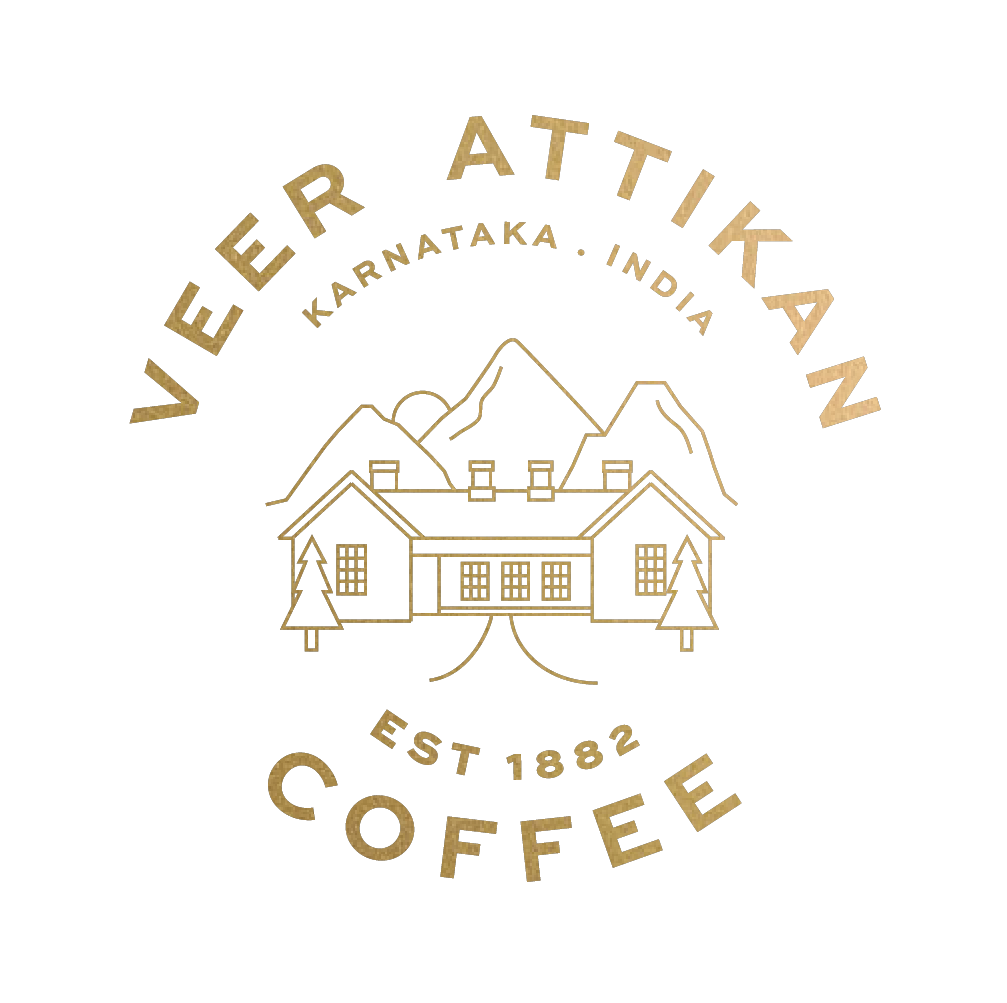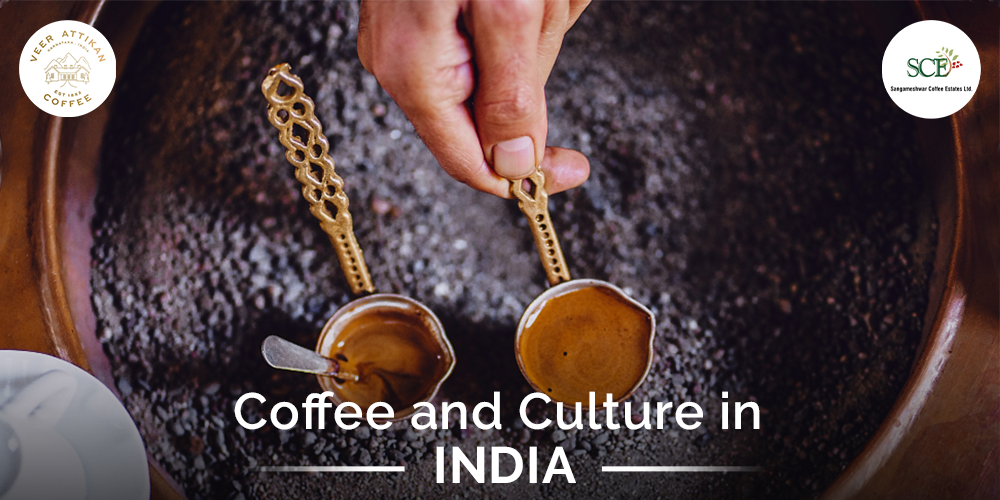Coffee is not just a popular beverage, but it is deeply ingrained in the cultural fabric of societies. India is a country steeped in culture and tradition, with a rich history of art, literature, music, and cuisine. Coffee has a rich history and plays a significant role in the country’s social, economic, and cultural aspects. It is not only a daily ritual for millions of Indians, but it also has a significant impact on the country’s economy as one of the leading coffee producers in the world. Additionally, the history of coffee in India is intertwined with the colonial past, and its consumption and production have evolved to reflect changing social norms and preferences.
The History of Coffee Culture in India
Coffee was first introduced to India by the Sufi saint Baba Budan in the 17th century. Baba Budan smuggled seven coffee beans from Yemen and planted them in the hills of Chikmagalur in Karnataka. The coffee plants thrived in the Indian climate, and soon, coffee cultivation spread to other parts of the country.
Coffee became an important cash crop in India during the British colonial era. The British East India Company encouraged coffee cultivation in the country and set up coffee plantations in the hills of southern India. Coffee became a substantial source of income for the British, and India quickly became one of the world’s top coffee producers.
Coffee’s Role in Social Gatherings
Coffee has also played a vital role in social gatherings in India for many years. Coffee is often served to guests as a symbol of hospitality and respect, and a cup of coffee is a traditional method for strangers to break the ice. The act of offering and sharing coffee is a gesture of friendship and connection. It is a vital aspect of many social occasions, including weddings and religious festivals.
In South India, filter coffee, also known as “kaapi,” is a cultural icon. It is a traditional South Indian coffee made by mixing hot milk and coffee decoction. The decoction is made by boiling ground coffee powder in water and filtering it through a cloth. Filter coffee’s powerful scent is generally linked with South Indian hospitality and is poured in traditional steel tumblers and saucers.
Speciality coffee shops have become increasingly prominent in India’s metropolitan areas in recent years. These cafés provide high-quality coffee brewed from beans from all around the world. They offer a range of brewing methods, including pour-over, French press, and Aeropress. These cafes cater to a young, urban crowd, and have become popular hangout spots for college students and professionals.
The Evolution of Coffee Culture in India
Over the years, coffee culture in India has evolved significantly. From traditional filter coffee to specialty coffee, the country has seen a massive transformation in its coffee culture.
Coffee retail businesses such as Café Coffee Day and Barista first appeared in India in the 1990s. These cafes offered a new, modern take on coffee culture, and they quickly became popular among the younger generation. They introduced a range of coffee-based drinks such as cappuccino, latte, and espresso, and they became symbols of modernity and sophistication.
The emergence of specialty coffee shops in India has further transformed the country’s coffee culture. These cafés serve high-quality coffee prepared from single-origin beans from throughout the world. They have educated baristas who are proficient in various brewing processes, and they provide a variety of coffee-based beverages to suit a wide range of tastes and preferences.
In conclusion,
Coffee has become an integral part of Indian culture, and it plays a vital role in social gatherings. From traditional filter coffee to specialty coffee, India has seen a massive transformation in its coffee culture over the years. Coffee shops and cafes have become popular meeting places for people to socialize and relax. Coffee has become a symbol of modernity and sophistication, and it has become an essential aspect of daily life in India. Whether it’s a cup of filter coffee or a latte from a specialty coffee shop, coffee will continue to be an essential aspect of Indian culture for years to come.






